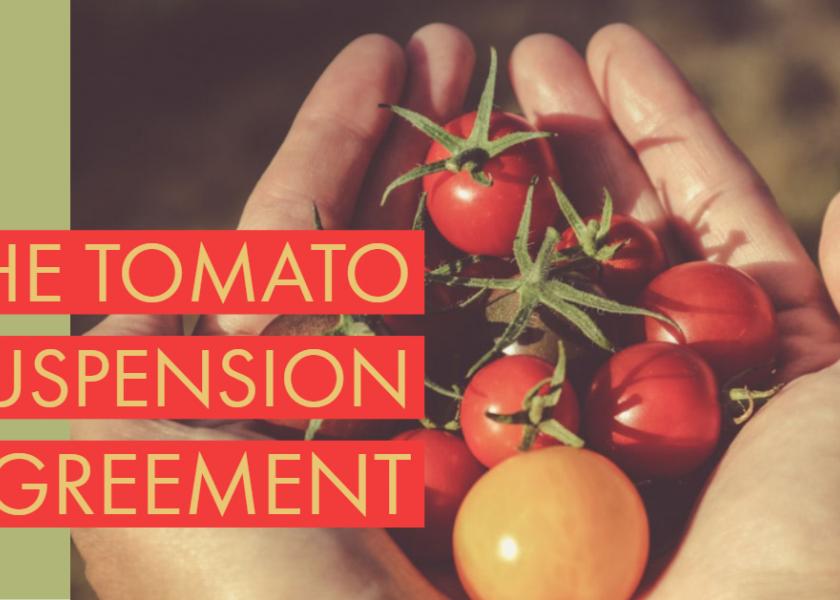New Commerce proposal shows promise, Florida tomato group says

A new Department of Commerce proposal for a tomato suspension agreement with Mexican tomato growers is a “good starting point” to resume negotiations, according to the Florida Tomato Exchange.
The group said in a statement that the July 17 proposal from the Department of Commerce “moves negotiations forward on a constructive basis by recognizing the need for a more enforceable agreement.”
“A robust and enforceable structure is the only way the domestic industry will be able to support a new suspension agreement,” the group said.
A spokesperson for the legal counsel for Mexican tomato growers could not immediately be reached for comment.
However, Lance Jungmeyer, president of the Fresh Produce Association of the Americas, said in an email that he sees little potential for success in the Commerce proposal.
New details
The proposal from the Department of Commerce said the agency has been working with both Mexican tomato growers and representatives of the U.S. tomato industry to reach a consensus on a new suspension agreement.
The U.S. Department of Commerce withdrew from the previous suspension agreement on May 7, restarting its dumping investigation on Mexican tomatoes and putting in place a 17.56% duty on Mexican tomato imports. Secretary of Commerce Wilbur Ross said at the time the agency was quitting the agreement because of American tomato growers had expressed concerns about unfair trading practices by Mexican tomato growers and exporters.
Before the U.S. withdrew from the deal in May, various versions of the suspension agreement with Mexican tomato growers had been in place since late 1996.
New pitch
Commerce said it changed some aspects of its proposal from previous versions, but decided to maintain its provision for inspection of 100% of incoming loads of imported tomatoes from Mexico, with inspections based on a sample of each load. Commerce said border inspections will “normally occur within 48 hours” and usually far more quickly than 48 hours.
Commerce also said it “significantly” changed the scope of the adjustment provisions related to destination inspections at receivers’ facilities by excluding quality defects.
“The optional secondary inspection that may be requested by the buyer and the accompanying provisions for adjustments, therefore, remain focused on the condition of the tomatoes after entry,” Commerce said in the proposal. “This reduces the likelihood of extremely costly rejected loads that must be returned to Mexico,” Commerce said in the proposal. Commerce said July 17 that it hoped to reach a draft final agreement with Mexican tomato growers by July 31.
FPAA perspective
While the Florida Tomato Exchange sees promise in the July 17 proposal from Commerce, the FPAA does not. In comments submitted to the agency about the latest proposal, the group said that 100% inspections would represent a trade barrier.
“The FPAA is extremely disappointed to see that Commerce continues to push for the 100% border inspections and continues to push to remove buyers’ rights for breach of contract damages on rejected tomatoes given that there is no evidence that either of these extreme measures are necessary,” the comments said. “This appears to be based on an unsubstantiated claim that poor quality tomatoes are imported from Mexico.”
The group said it was also “extremely concerned” that Commerce is proposing a price differential for organic production that is more than 60% higher than the price for conventional tomatoes and a price for stem-on tomatoes “that is out of the realm of what the market would allow.”
In comments to Commerce, the FPAA said the proposal overreaches its mission.
“Commerce has authority to remedy dumping, not to restructure markets and the common law for damages for breach of contract,” the FPAA said. “If Commerce pursues this course, we warn that it is open to antitrust or other legal challenges by the industry the moment it is signed.”
Related articles
Lacking new deal, U.S.-Mexico tomato trade adjusts to new normal
Mexico tomato growers say data confirms no dumping in the U.S.







